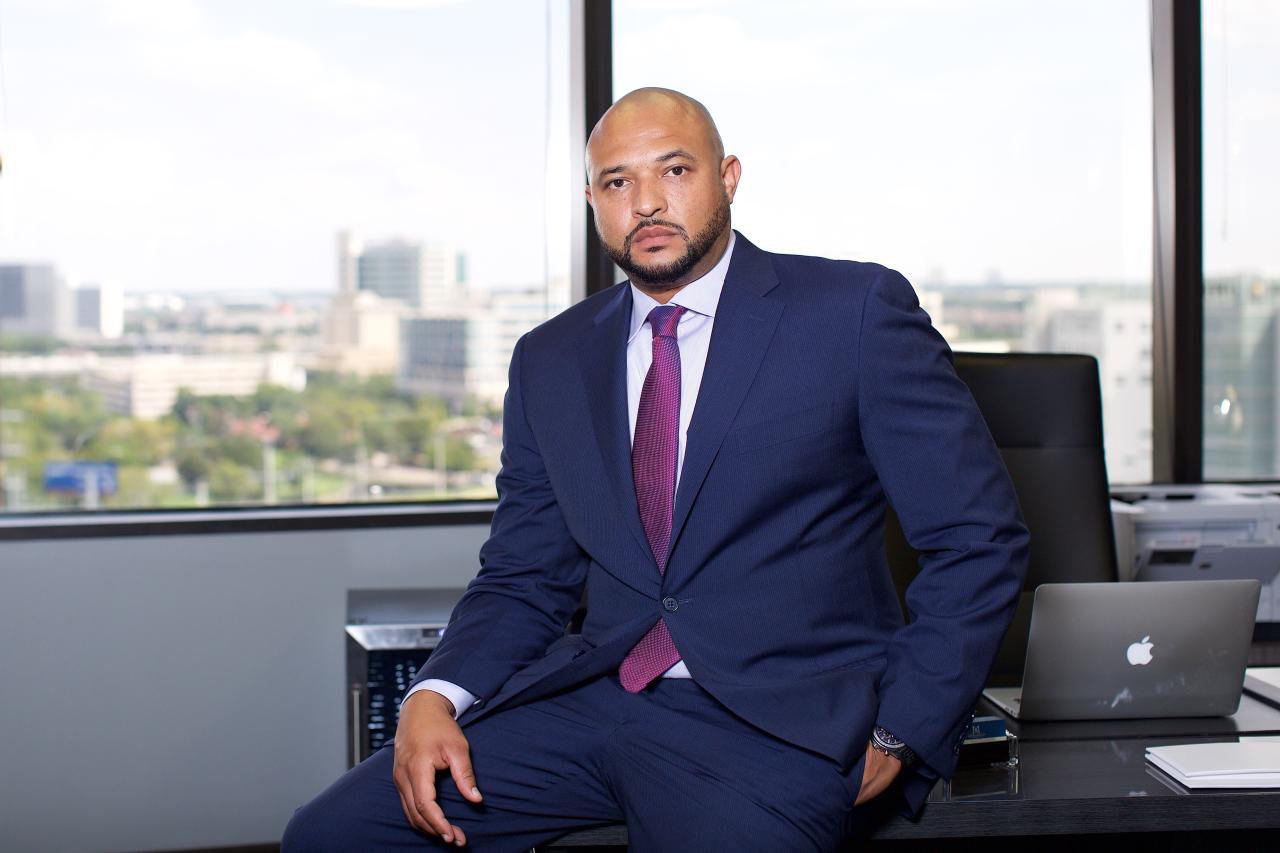Personal injury lawyer Dallas is a crucial resource for individuals seeking legal guidance and representation after experiencing a personal injury. In the bustling city of Dallas, accidents and injuries can occur in various forms, from car crashes and slip-and-falls to medical malpractice and product liability. This comprehensive guide will explore the intricacies of personal injury law in Dallas, providing insights into common types of cases, the importance of choosing the right lawyer, and the steps involved in pursuing compensation for your injuries.
Navigating the legal system after an injury can be overwhelming, but understanding your rights and options is essential. From the initial stages of seeking medical attention to pursuing legal remedies, this guide will provide valuable information to empower you throughout the process.
The Trial Process in Personal Injury Cases
A personal injury trial is a formal legal process where a jury or judge decides whether a defendant is liable for the plaintiff’s injuries and the amount of damages the plaintiff should receive. The trial process in Dallas is a complex and time-consuming process that involves multiple stages, from jury selection to closing arguments.
The Steps Involved in a Personal Injury Trial
The trial process in a personal injury case typically involves the following steps:
- Jury Selection: This process involves selecting a group of impartial individuals who will hear the evidence and decide the case. Attorneys from both sides question potential jurors to ensure they are unbiased and capable of making a fair decision.
- Opening Statements: Both the plaintiff’s and defendant’s attorneys present their case to the jury, outlining the facts they intend to prove and the legal arguments they will use.
- Plaintiff’s Case: The plaintiff presents their evidence, including witness testimony and documents, to support their claim that the defendant is liable for their injuries.
- Defendant’s Case: The defendant presents their evidence, including witness testimony and documents, to refute the plaintiff’s claims and argue that they are not liable.
- Rebuttal: The plaintiff may present additional evidence to rebut the defendant’s arguments.
- Closing Arguments: Both attorneys summarize their cases and present their final arguments to the jury.
- Jury Instructions: The judge instructs the jury on the law applicable to the case.
- Jury Deliberation: The jury retires to a private room to discuss the evidence and reach a verdict.
- Verdict: The jury announces its verdict, which can be in favor of the plaintiff or the defendant. The verdict will specify the amount of damages, if any, that the plaintiff is entitled to receive.
The Role of Evidence and Witness Testimony
Evidence and witness testimony are crucial elements in a personal injury trial. Evidence can include:
- Medical Records: Documents that detail the plaintiff’s injuries and treatment.
- Police Reports: Reports that document the incident that led to the plaintiff’s injuries.
- Photographs and Videos: Visual documentation of the accident scene and the plaintiff’s injuries.
- Expert Testimony: Testimony from qualified professionals, such as doctors or engineers, who can provide expert opinions on the cause of the plaintiff’s injuries or the damages they have suffered.
Witness testimony can be given by:
- The Plaintiff: The plaintiff will testify about their injuries, the circumstances surrounding the accident, and the impact the injuries have had on their life.
- Eyewitnesses: Individuals who witnessed the accident or have relevant information about the events leading up to the accident.
Potential Outcomes of a Personal Injury Trial
The outcome of a personal injury trial can vary depending on the facts of the case and the arguments presented by both sides. The potential outcomes include:
- Verdict in Favor of the Plaintiff: The jury finds the defendant liable for the plaintiff’s injuries and awards damages to the plaintiff. The amount of damages can include medical expenses, lost wages, pain and suffering, and other damages.
- Verdict in Favor of the Defendant: The jury finds that the defendant is not liable for the plaintiff’s injuries. The plaintiff will not receive any damages.
- Settlement: Before trial, the parties may reach a settlement agreement where the defendant agrees to pay the plaintiff a certain amount of money in exchange for the plaintiff dropping their lawsuit.
- Appeal: If either party is dissatisfied with the verdict, they may appeal the decision to a higher court. An appeal can be based on legal errors made by the trial court or on the jury’s findings of fact.
Common Mistakes to Avoid in Personal Injury Cases: Personal Injury Lawyer Dallas

Navigating a personal injury case can be complex, and making certain mistakes can significantly impact the outcome of your claim. Understanding these common pitfalls and taking proactive steps to avoid them is crucial for protecting your rights and maximizing your chances of a successful resolution.
Failing to Seek Medical Attention Promptly
It is essential to seek medical attention immediately after an accident, even if you feel fine. Delaying medical care can hinder your ability to document your injuries and demonstrate the extent of your damages.
- Documenting Injuries: Medical records serve as crucial evidence in personal injury cases. Seeking prompt medical care allows your doctor to document your injuries and treatment, which can be invaluable in proving your claim.
- Aggravating Injuries: Ignoring or delaying treatment can worsen your injuries and make it harder to recover. This can also affect the overall settlement value of your case.
- Lost Wage Claims: If you are unable to work due to your injuries, prompt medical attention can support your lost wage claims.
Not Reporting the Accident to the Authorities
In most cases, it is crucial to report an accident to the appropriate authorities, such as the police or a relevant regulatory agency. Failing to do so can have serious consequences.
- Legal Requirements: Many states have laws requiring the reporting of certain accidents, such as car accidents or workplace injuries. Failing to comply with these laws can result in penalties.
- Insurance Claims: Reporting the accident is often a prerequisite for filing an insurance claim. Without a police report or other official documentation, your insurance company may deny your claim.
- Evidence Preservation: A police report can provide valuable documentation of the accident, including details about the incident, witness statements, and the extent of injuries. This information can be crucial in building your case.
Speaking to the Insurance Company Without Legal Counsel, Personal injury lawyer dallas
Insurance companies are businesses with a vested interest in minimizing their payouts. It is crucial to avoid speaking to the insurance company without first consulting with a personal injury attorney.
- Recorded Statements: Insurance companies often record conversations with accident victims. Statements made without legal counsel can be used against you in court.
- Misleading Information: Insurance adjusters may ask leading questions or provide misleading information to try and minimize your claim. An attorney can help you navigate these conversations and protect your interests.
- Settlement Offers: Insurance companies may offer a quick settlement, but it is often significantly less than the actual value of your claim. An attorney can help you evaluate the offer and ensure you receive fair compensation.
Not Gathering Evidence
Evidence is essential in personal injury cases. Failing to gather and preserve evidence can weaken your claim.
- Photographs and Videos: Document the scene of the accident, your injuries, and any property damage. This evidence can be crucial in proving your case.
- Witness Information: Gather contact information from any witnesses to the accident. Their statements can provide valuable support for your claim.
- Medical Records: Obtain copies of all medical records related to your injuries. These records will document your treatment and the extent of your damages.
Ignoring Deadlines
Personal injury cases involve strict deadlines for filing lawsuits and other legal actions. Failing to meet these deadlines can result in the dismissal of your claim.
- Statute of Limitations: Each state has a statute of limitations that sets a time limit for filing a personal injury lawsuit. Missing this deadline can permanently bar you from seeking compensation.
- Insurance Claims: Insurance companies also have deadlines for filing claims. Missing these deadlines can prevent you from receiving benefits.
Failing to Follow Your Doctor’s Orders
Following your doctor’s orders is essential for your recovery and can strengthen your case.
- Proving Damages: If you fail to follow your doctor’s orders, it can make it harder to prove the extent of your injuries and damages.
- Insurance Disputes: Insurance companies may argue that your injuries were not as severe as you claim if you did not follow your doctor’s instructions.
- Medical Negligence: In some cases, failing to follow your doctor’s orders could be considered medical negligence, which could impact your claim.
Posting on Social Media
It is crucial to be mindful of your social media activity after an accident. Posts about your injuries or activities can be used against you in court.
- Evidence of Recovery: Posts that show you engaging in activities that you claim you cannot do due to your injuries can undermine your case.
- Admitting Fault: Posts that admit fault for the accident or make statements about your injuries can be used against you.
- Privacy Concerns: Be aware that your social media posts can be accessed by the opposing party in your case.
Not Consulting a Lawyer
A personal injury attorney can provide valuable guidance and support throughout the legal process. Failing to consult with an attorney can lead to missed opportunities and costly mistakes.
- Legal Expertise: An attorney understands the complex laws and procedures involved in personal injury cases.
- Negotiation Skills: An attorney can negotiate with insurance companies on your behalf and ensure you receive fair compensation.
- Litigation Experience: If your case goes to court, an attorney can represent you and advocate for your rights.
Last Recap

Remember, seeking legal counsel from a qualified personal injury lawyer in Dallas is crucial to protect your rights and ensure a fair outcome. By understanding the intricacies of personal injury law, you can navigate the legal system with confidence and seek the justice you deserve.
If you’re in Dallas and need a personal injury lawyer, it’s crucial to find someone experienced and dedicated to fighting for your rights. Similar to the need for a skilled car accident lawyer in San Bernardino , a Dallas lawyer can help you navigate the complexities of your case and ensure you receive the compensation you deserve.
Remember, seeking legal guidance after an accident is essential for protecting your interests.